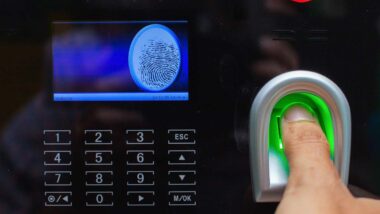Top Class Actions’s website and social media posts use affiliate links. If you make a purchase using such links, we may receive a commission, but it will not result in any additional charges to you. Please review our Affiliate Link Disclosure for more information.

Update:
- A Washington federal judge dismissed a class action lawsuit against Amazon that alleged the company illegally obtained biometric identifiers of its customers for facial recognition.
- On Oct. 17, U.S. District Judge James L. Robart granted Amazon’s motion for summary judgment.
- Plaintiffs Steven Vance and Tim Jacnecyk claimed Amazon illegally obtained their facial scans, along with the facial scans of thousands of other consumers, to improve the company’s Rekognition software in violation of Illinois’ Biometric Information Privacy Act (BIPA).
- However, Amazon argued that the lawsuit did not relate to claims “primarily and substantially” in the state of Illinois so BIPA did not apply.
- Judge Robart agreed, stating there wasn’t sufficient evidence to support Amazon’s actions related to BIPA claims in Illinois.
(July 16, 2020)
Amazon faces a class action lawsuit from consumers who claim the company illegally obtained biometric identifiers for facial recognition.
According to plaintiffs Steven Vance and Tim Jacnecyk, their facial scans – along with the facial scans of thousands of other consumers – were illegally obtained by Amazon in order to improve the company’s Rekognition software. According to the Illinois residents, this violated the state’s Biometric Information Privacy Act.
The plaintiffs explain that facial recognition, once a thing seen only in movies, is now being used by both public and private entities. This technology has numerous applications from identifying people in crowds for law enforcement or identifying other personal information for other entities.
Unfortunately, the plaintiffs note there is a “major problem” with facial recognition technology: it generally is inaccurate especially when identifying women and people of color.
In 2018, researchers released a Gender Shades study which analyzed three facial recognition technologies. Amazon’s Rekognition software reportedly had an error rate of 31.37% when identifying dark skinned female faces – opposed to a 0% error rate when identifying light skinned male faces.
In response to these frequent errors, businesses have reportedly made it their goal to become the market leader in facial recognition by claiming a low identification error rate.
In April 2019, IBM reportedly created Diversity in Faces – a new dataset consisting of 1 million images collected from Flickr. The purpose of this data set was to improve the ability to fairly and accurately identify all individuals using facial recognition software.
Unfortunately, IBM reportedly failed to get consumer consent before compiling the database, meaning that thousands of individuals had their biometric identifiers and personal information detailed without their consent. Both IBM and Flickr have already faced legal action over the alleged breach of privacy.
Despite the lack of consumer consent, Amazon reportedly acquired the Diversity in Faces dataset in order to improve their Rekognition software. Plaintiffs in the recent Amazon class action lawsuit argue that the company illegally obtained this data and profited from the biometrics.
“Amazon profited from the biometric identifiers and information contained in the Diversity in Faces Dataset because those biometric identifiers and information allowed Amazon to improve its facial recognition products and technologies, including, upon information and belief, by allowing Amazon to improve the effectiveness of its facial recognition technology on a diverse array of faces, thereby making those products and technologies more valuable in the commercial marketplace,” the Amazon class action lawsuit contends.
The Amazon class action lawsuit argues that the massive retailer has violated Illinois’ Biometric Information Privacy Act, or BIPA, by collecting biometric face scans without consumer consent.
Biometric identifiers are unique from other forms of identification, even Social Security numbers, because they cannot be changed. A fingerprint, facial geometry, retina scan, or other biometric identifier cannot be changed if the information is compromised. As a result, Illinois passed BIPA in order to protect this sensitive data.
“Biometrics are unlike other unique identifiers that are used to access finances or other sensitive information,” the Illinois General Assembly explained.
“For example, social security numbers, when compromised, can be changed. Biometrics, however, are biologically unique to the individual; therefore, once compromised, the individual has no recourse, is at heightened risk for identity theft, and is likely to withdraw from biometric-facilitated transactions.”
BIPA provides a variety of protections to biometric data, including the following:
- Prohibits the collection or obtaining of biometric identifiers without providing written notice and without an individual’s written consent;
- Prohibits businesses from profiting from the collection of biometric identifiers;
- Requires a written policy to be developed and made to the public establishing a retention schedule of biometric identifiers and guidelines for permanently destroying the data once retention is over.
Violating BIPA can come with steep fines – up to $1,000 for negligent violations and up to $5,000 for intentional or reckless violations. If an individual has sustained actual damages as a result of BIPA violations, they are able to collect those damages instead, as long as the amount exceeds the imposed fines.
The Amazon class action lawsuit includes several claims including unjust enrichment and, most notably, violations of BIPA.
The plaintiffs seek to represent a Class of Illinois residents whose faces appear in the Diversity in Faces dataset, which were obtained by Amazon. On behalf of themselves and these proposed Class Members, the plaintiffs seek injunctive relief, declaratory relief, statutory damages, punitive damages, disgorgement, restitution, interest, court costs, and attorneys’ fees.
Did you have your biometric information catalogued by Amazon through the Diversity in Faces dataset? Let us know in the comments section below.
Plaintiffs and the proposed Class are represented by David B. Owens, Michael Kanovitz, and Scott R. Drury of Loevy & Loevy along with Gary Lynch, Katrina Carroll, Kyle A. Shamberg, and Nicholas R. Lange of Carlson Lynch LLP.
The Amazon BIPA Class Action Lawsuit is Steven Vance, et al. v. Amazon.com Inc., Case No. 2:20-cv-01084, in the U.S. District Court for the Western District of Washington.
Don’t Miss Out!
Check out our list of Class Action Lawsuits and Class Action Settlements you may qualify to join!
Read About More Class Action Lawsuits & Class Action Settlements:















5 thoughts onAmazon class action over biometric data collection dismissed
Add me
Add me
Add me
Add me
add me